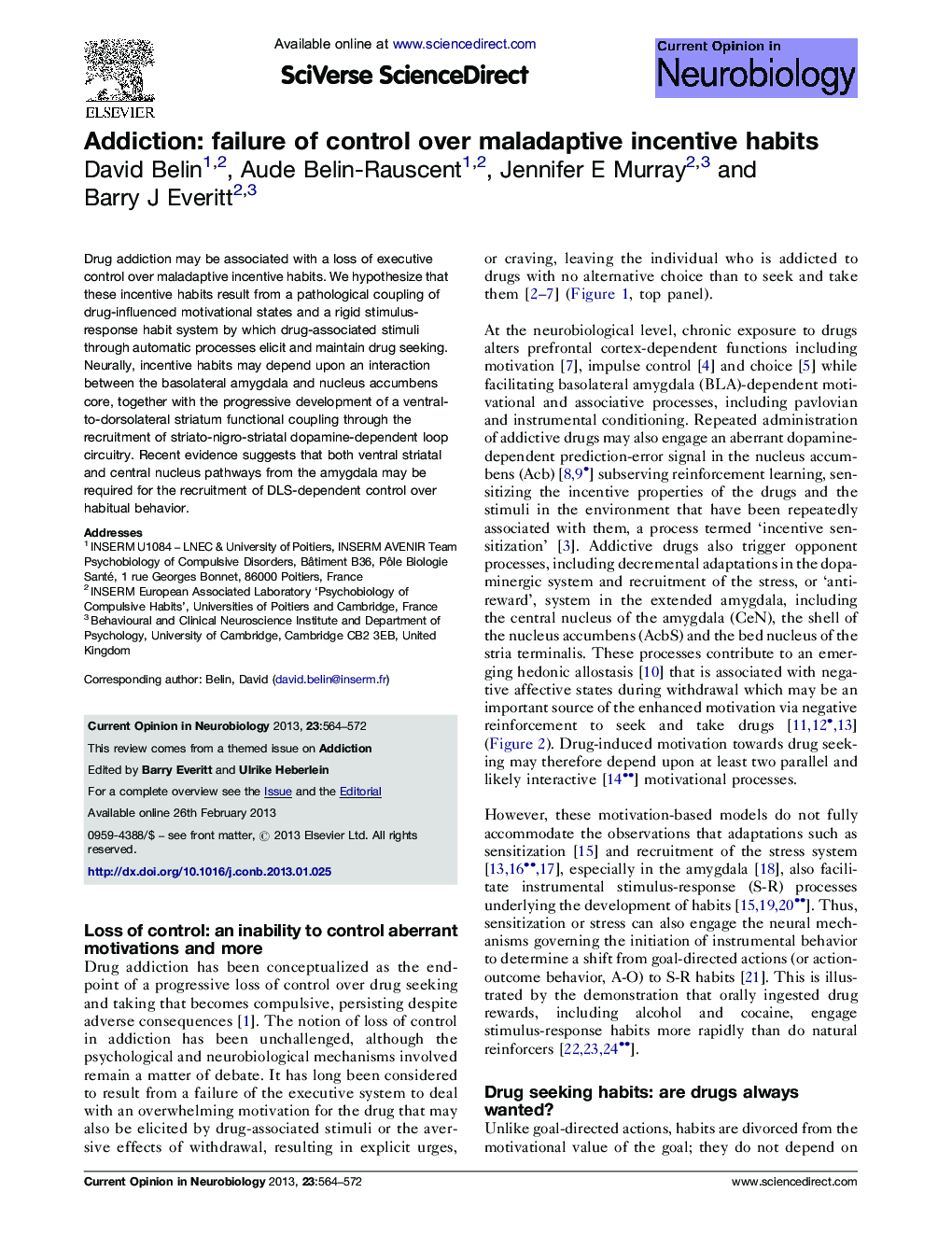| Article ID | Journal | Published Year | Pages | File Type |
|---|---|---|---|---|
| 6267105 | Current Opinion in Neurobiology | 2013 | 9 Pages |
Drug addiction may be associated with a loss of executive control over maladaptive incentive habits. We hypothesize that these incentive habits result from a pathological coupling of drug-influenced motivational states and a rigid stimulus-response habit system by which drug-associated stimuli through automatic processes elicit and maintain drug seeking. Neurally, incentive habits may depend upon an interaction between the basolateral amygdala and nucleus accumbens core, together with the progressive development of a ventral-to-dorsolateral striatum functional coupling through the recruitment of striato-nigro-striatal dopamine-dependent loop circuitry. Recent evidence suggests that both ventral striatal and central nucleus pathways from the amygdala may be required for the recruitment of DLS-dependent control over habitual behavior.
⺠Addiction results from abnormal coupling of motivational processes to drug seeking habits, so-called incentive habits. ⺠Loss of control may result from an inability to detect a direct trigger of habitual schemata by motivational urges. ⺠Incentive habits depend upon the recruitment of the dopamine-dependent striato-nigro-striatal circuitry. ⺠Dorsal striatum-dependent habits are controlled by associative processes in the basolateral and central nuclei of the amygdala.
